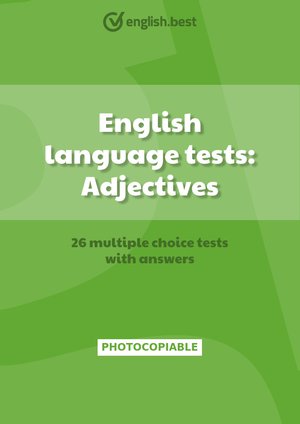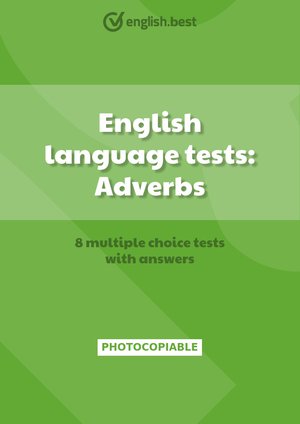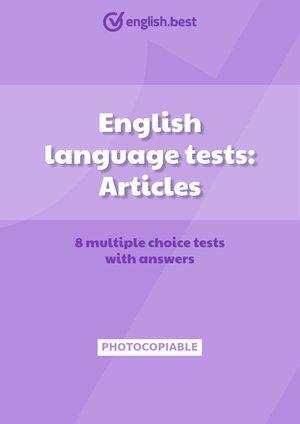English Grammar Through Stories (PDF)

- Searchable
- Printable
- Photocopiable
Learning grammar is easy if you know how! Read these amusing short stories and you will see just what I mean. Your grammar skills will improve almost by themselves!
Dear Friend,
Do you like to learn grammar rules? Certainly not. Or at least not much. Yet, grammar is important if you want to learn English. You probably remember how your English teachers tried to explain grammar rules to you when you were at school. You did hundreds of textbook exercises and wrote numerous grammar tests but how good is your grammar after all these long years? Have you ever asked yourself why it seems so hard to master English grammar?
Most people think that it is their own fault, that they are not clever enough to "understand" the grammar rules. That's why they are frustrated and often simply give up. The truth is that learning English grammar is much easier than you imagine. As a matter of fact, it is so simple that you just wouldn't believe it. Do you remember how you learned the grammar of your native language? You didn't do any textbook exercises or read complicated explanations. But nevertheless you learned the grammar of your mother tongue. It's a fact that most 5 to 7 year old children use about 90% of their native grammar rules correctly. At that age most of them can't even read or write. Why can't you learn English grammar the same way you learned the grammar of your mother tongue? Wait a minute, who says you can't? You can, actually.
Yes it's true, you can learn English grammar just like you learned the grammar of your native language. So let me ask you my question again: How did you learn the grammar rules of your mother tongue? The answer is strangely simple: You learned the rules subconsciously. This means, instead of trying to cram rules into your head by doing grammar exercises, you interacted with your parents and other speakers. Your parents used certain phrases that consisted of both grammar and vocabulary. Now you have to do the same thing again - treat the English language as something whole instead of dissecting it by means of rules. I have created for you a series of funny and interesting short stories. If you want, you can read them for the content, not the grammar. However, since I want you to learn English grammar rules even faster than a child, I created each story in such a way that it concentrates on one particular grammar item. In other words, my stories are mini grammar lessons in disguise. You will absorb the grammar rules automatically, without even noticing it.
Many of the stories contain a lot of dialogues to illustrate how people interact in English. When you read the stories, you will pick up new phrases that are based on certain grammar rules and you will have fun doing so. You don't like cramming grammar rules into your head but you do enjoy reading funny short stories, don't you? In every story you will meet a new "hero" and you will encounter all kinds of situations with them. For example, there is Andrew Smodley who worries about everything and therefore has a hard time finding a wife. See if and how Andrew overcomes this problem and learn the use of the present simple automatically. And you'll get to know the Marvells, a British couple who every summer spend their holidays on Majorca until they win the lottery and then everything seems to change. In one of the stories I'll even tell you how I got my first job.
For those of you who like a bit more grammar information I have added some explanations which you can turn to any time. To spice it all up, I also included some short essays on English expressions and idioms such as my "Word Story on Search Engines" or the "Essay on Jokes". Finally you will read the story on how I bought a car for my wife and you will be amazed at how many "coloUr expressions" it contains.
Now, the only way to experience a completely new approach to learning grammar is for you to secure your copy of "English Grammar through Stories" today.
Here are the main features of your new product and your benefits:
- It's in a printable format (A4)
- Robust and universal file format (PDF)
- PhotocopiableYou have the permission to make photocopies of the document or parts of the document to use it as handouts/worksheets in classrooms or training courses.
- Neatly formatted and clearly structured 106 pages
- For use in a classroom, at home, on PC, or anywhere
- Special designed for teachers and individual learners
- The best English language learning approach
- Author: Alan Townend




